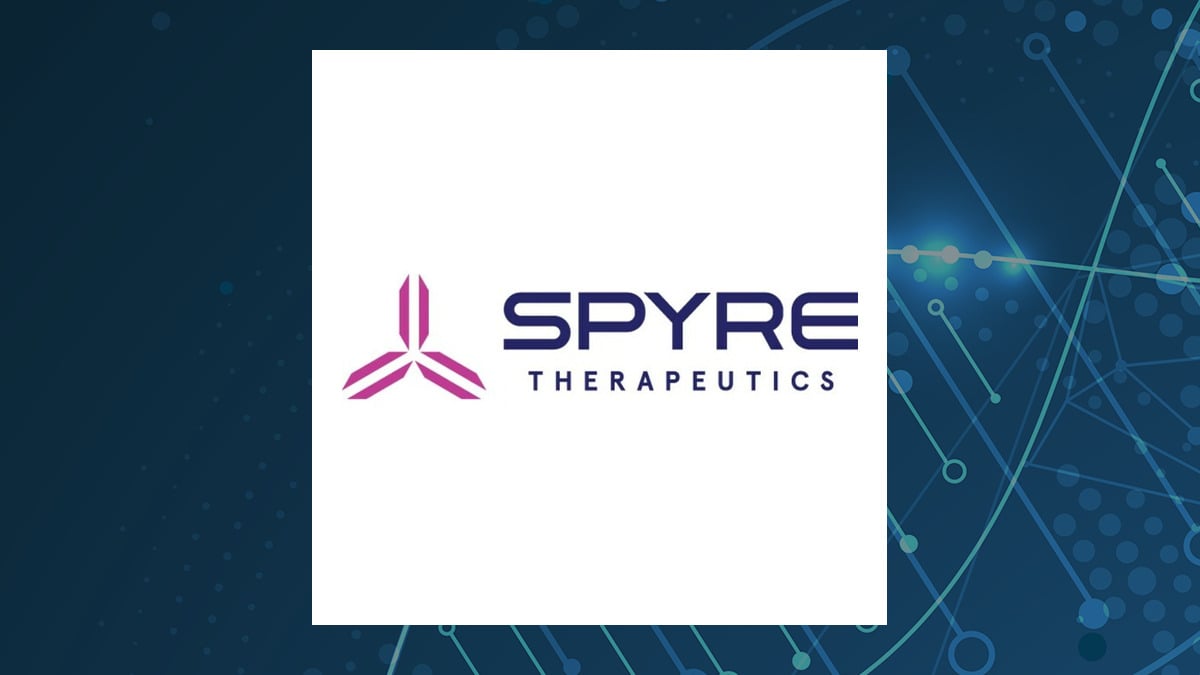Generation Bio (NASDAQ:GBIO – Get Free Report) and Spyre Therapeutics (NASDAQ:SYRE – Get Free Report) are both small-cap medical companies, but which is the superior investment? We will contrast the two businesses based on the strength of their profitability, risk, institutional ownership, valuation, dividends, earnings and analyst recommendations.
Valuation & Earnings
This table compares Generation Bio and Spyre Therapeutics”s top-line revenue, earnings per share (EPS) and valuation.
| Gross Revenue | Price/Sales Ratio | Net Income | Earnings Per Share | Price/Earnings Ratio | |
| Generation Bio | $18.58 million | 3.99 | -$126.61 million | ($2.19) | -0.51 |
| Spyre Therapeutics | $890,000.00 | 1,390.95 | -$338.79 million | ($7.47) | -3.22 |
Generation Bio has higher revenue and earnings than Spyre Therapeutics. Spyre Therapeutics is trading at a lower price-to-earnings ratio than Generation Bio, indicating that it is currently the more affordable of the two stocks.
Analyst Recommendations
| Sell Ratings | Hold Ratings | Buy Ratings | Strong Buy Ratings | Rating Score | |
| Generation Bio | 0 | 0 | 2 | 0 | 3.00 |
| Spyre Therapeutics | 0 | 0 | 7 | 0 | 3.00 |
Generation Bio presently has a consensus price target of $7.50, indicating a potential upside of 575.68%. Spyre Therapeutics has a consensus price target of $51.50, indicating a potential upside of 113.96%. Given Generation Bio’s higher probable upside, equities research analysts plainly believe Generation Bio is more favorable than Spyre Therapeutics.
Profitability
This table compares Generation Bio and Spyre Therapeutics’ net margins, return on equity and return on assets.
| Net Margins | Return on Equity | Return on Assets | |
| Generation Bio | -782.86% | -104.85% | -49.54% |
| Spyre Therapeutics | N/A | -210.01% | -44.40% |
Institutional & Insider Ownership
95.2% of Generation Bio shares are held by institutional investors. Comparatively, 80.4% of Spyre Therapeutics shares are held by institutional investors. 21.1% of Generation Bio shares are held by insiders. Comparatively, 6.2% of Spyre Therapeutics shares are held by insiders. Strong institutional ownership is an indication that hedge funds, endowments and large money managers believe a stock will outperform the market over the long term.
Risk & Volatility
Generation Bio has a beta of 2.66, suggesting that its share price is 166% more volatile than the S&P 500. Comparatively, Spyre Therapeutics has a beta of 2.82, suggesting that its share price is 182% more volatile than the S&P 500.
Summary
Generation Bio beats Spyre Therapeutics on 8 of the 13 factors compared between the two stocks.
About Generation Bio
 Generation Bio Co. develops non-viral genetic medicines for the treatment of rare and prevalent diseases. The company develops cell-targeted lipid nanoparticle (ctLNP) platform, a modular delivery system for nucleic acids to avoid off-target clearance by the liver and spleen that enables ctLNPs to persist in systemic circulation, which allows for highly selective and potent ligand-driven targeting to specific tissues and cell types; and novel immune-quiet DNA (iqDNA) to enable long-lasting high levels of gene expression from non-integrating episomes and avoids innate immune sensors that have long prevented DNA from use in non-viral systems. It uses its platform for developing a portfolio of programs for treating cancer, autoimmune, hematologic disorders, prioritizing sickle cell, beta-thalassemia, and hemophilia A diseases, as well as for other tissues and cell types, including retina, skeletal muscle, and central nervous system. The company was formerly known as Torus Therapeutics, Inc. and changed its name to Generation Bio Co. in November 2017. Generation Bio Co. was incorporated in 2016 and is headquartered in Cambridge, Massachusetts.
Generation Bio Co. develops non-viral genetic medicines for the treatment of rare and prevalent diseases. The company develops cell-targeted lipid nanoparticle (ctLNP) platform, a modular delivery system for nucleic acids to avoid off-target clearance by the liver and spleen that enables ctLNPs to persist in systemic circulation, which allows for highly selective and potent ligand-driven targeting to specific tissues and cell types; and novel immune-quiet DNA (iqDNA) to enable long-lasting high levels of gene expression from non-integrating episomes and avoids innate immune sensors that have long prevented DNA from use in non-viral systems. It uses its platform for developing a portfolio of programs for treating cancer, autoimmune, hematologic disorders, prioritizing sickle cell, beta-thalassemia, and hemophilia A diseases, as well as for other tissues and cell types, including retina, skeletal muscle, and central nervous system. The company was formerly known as Torus Therapeutics, Inc. and changed its name to Generation Bio Co. in November 2017. Generation Bio Co. was incorporated in 2016 and is headquartered in Cambridge, Massachusetts.
About Spyre Therapeutics
 Spyre Therapeutics, Inc., a preclinical stage biotechnology company, focuses on developing therapeutics for patients living with inflammatory bowel disease (IBD). It develops SPY001, a human monoclonal immunoglobulin G1 antibody designed to bind selectively to the a4ß7 integrin being developed for the treatment of IBD (ulcerative colitis and Crohn's disease). The company is also developing SPY002, a human monoclonal antibody (mAb)candidates designed to bind to tumor necrosis factor-like ligand 1A; and SPY120, a combination of SPY001 (anti-a4ß7) and SPY002 (anti-TL1A) antibodies, which are in preclinical studies. In addition, its other early-stage programs include SPY003, an anti-IL-23 mAb; SPY004, a novel mechanism of action (MOA) mAb; SPY130, a combination of anti-a4ß7 and anti-IL-23 mAbs; and SPY230, a combination of anti-TL1A and anti-IL-23 mAbs. The company was formerly known as Aeglea BioTherapeutics, Inc. and changed its name to Spyre Therapeutics, Inc. in November 2023. Spyre Therapeutics, Inc. was incorporated in 2013 and is based in Waltham, Massachusetts.
Spyre Therapeutics, Inc., a preclinical stage biotechnology company, focuses on developing therapeutics for patients living with inflammatory bowel disease (IBD). It develops SPY001, a human monoclonal immunoglobulin G1 antibody designed to bind selectively to the a4ß7 integrin being developed for the treatment of IBD (ulcerative colitis and Crohn's disease). The company is also developing SPY002, a human monoclonal antibody (mAb)candidates designed to bind to tumor necrosis factor-like ligand 1A; and SPY120, a combination of SPY001 (anti-a4ß7) and SPY002 (anti-TL1A) antibodies, which are in preclinical studies. In addition, its other early-stage programs include SPY003, an anti-IL-23 mAb; SPY004, a novel mechanism of action (MOA) mAb; SPY130, a combination of anti-a4ß7 and anti-IL-23 mAbs; and SPY230, a combination of anti-TL1A and anti-IL-23 mAbs. The company was formerly known as Aeglea BioTherapeutics, Inc. and changed its name to Spyre Therapeutics, Inc. in November 2023. Spyre Therapeutics, Inc. was incorporated in 2013 and is based in Waltham, Massachusetts.
Receive News & Ratings for Generation Bio Daily - Enter your email address below to receive a concise daily summary of the latest news and analysts' ratings for Generation Bio and related companies with MarketBeat.com's FREE daily email newsletter.

